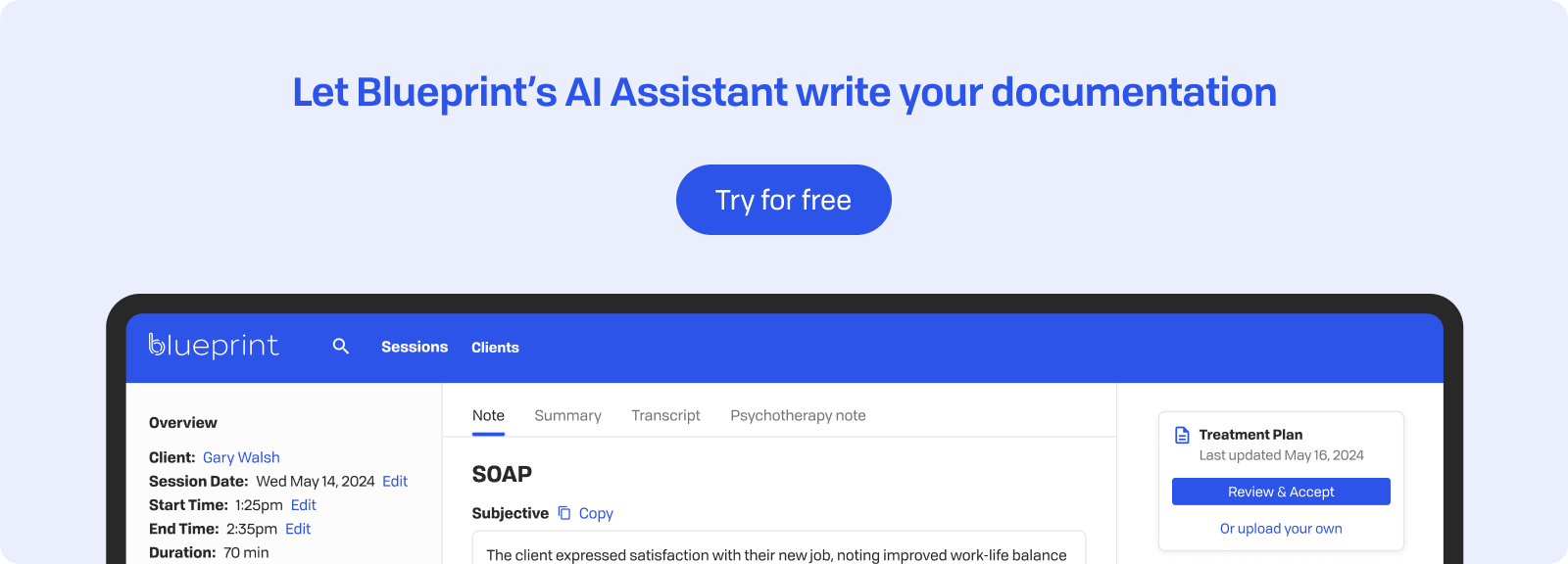In Brief
Infidelity can break even the strongest relationships, leaving both partners dealing with intense emotions and tough decisions. When couples or individuals seek therapy after cheating, they often feel lost, overwhelmed, and unsure if healing is possible.
Recovering from infidelity is complex and deeply personal. Each situation presents unique challenges, from rebuilding trust to processing betrayal, handling guilt, and deciding whether to stay or leave. These sessions need careful handling and specialized therapeutic methods.
Supporting clients through cheating and relationship repair requires both clinical skill and emotional sensitivity. Knowing how to address infidelity effectively can help determine whether a relationship grows stronger or remains in pain.
Understanding Cheating's Impact in Therapy
Infidelity triggers a flood of intense emotions that can overwhelm both partners. The betrayed partner often shows symptoms similar to trauma, such as intrusive thoughts, hypervigilance, and emotional numbness. Meanwhile, the unfaithful partner might struggle with shame, guilt, withdrawal, and fear of losing the relationship.
Clients usually seek therapy after cheating for several connected reasons. Trust breaks, leaving the betrayed partner questioning everything about their relationship and their own judgment. Communication often collapses, with conversations turning into cycles of accusation, defensiveness, and withdrawal. The unfaithful partner may feel crushed by guilt while struggling to understand their own actions.
Staying neutral is important when dealing with infidelity to preserve the therapeutic alliance. Your role as a couple’s therapist isn't to judge who's right or wrong, but to create a safe space where both partners can process their experiences. That’s because the relationship is your client, not one of the partners.This means resisting the urge to take sides, even when one partner's pain seems more visible. Instead, focus on helping each person understand their emotions, take responsibility for their actions, and explore what led to this crisis.

Assessing the Relationship Dynamics
Grasping the context of infidelity shapes your entire therapeutic approach. Different types of cheating create distinct challenges for couples. One-time infidelity often stems from poor judgment or specific circumstances, while ongoing affairs suggest deeper relationship issues. Emotional cheating can feel just as devastating as physical infidelity, sometimes more so, because it involves sharing intimate thoughts and feelings with someone outside the relationship.
Identify underlying patterns that contributed to the infidelity:
- Attachment styles: Anxiously attached partners might seek constant reassurance through affairs, while avoidantly attached individuals may use infidelity to maintain emotional distance.
- Unmet needs: Examine whether partners feel emotionally neglected, sexually unsatisfied, or disconnected from shared goals.
- Power imbalances: See if one partner controls finances, makes unilateral decisions, or uses manipulation tactics that create vulnerability to affairs.
Assist clients in honestly evaluating their relationship's future. Some couples discover stronger bonds through recovery, while others realize the infidelity has exposed irreparable differences. Guide them through thoughtful open-ended questions like:
- What was our relationship like before the affair?
- Can I imagine trusting my partner again?
- Am I staying out of love or something else, like fear?
- What would need to change for this relationship to work?
- What do I want out of this relationship now?
Avoid pushing clients toward any particular outcome. With some relationships, it might not be safe, or healthy to continue, especially when infidelity accompanies abuse or repeated betrayals. Others have the foundation for meaningful repair and a bright future. Your role is helping clients make informed decisions aligned with their values and well-being.
Working With the Partner Who Cheated
Helping a partner who has cheated involves balancing accountability with compassion. It's important to create an environment where they can reflect on their actions without being overwhelmed by shame, allowing for genuine growth and change.
Focus on guiding them to take full responsibility while maintaining their dignity. Use language that addresses behaviors rather than character: "You made choices that hurt your partner" instead of "You're a cheater." This distinction encourages clients to engage in the difficult work of self-examination without raising their defenses too high, or shutting them down.
Discuss the internal conflicts and motivations behind the infidelity:
- Unmet needs: Did they feel disconnected, unappreciated, or misunderstood in the relationship?
- Personal vulnerabilities: Were there issues with self-esteem, fear of intimacy, or unresolved trauma?
- Situational factors: Did life stressors, substance use, or opportunity play a role?
- Relationship patterns: Have they struggled with commitment or boundaries in past relationships?
Encourage their personal growth through specific behavioral changes. Assist them in developing strategies for managing triggers, improving communication skills, and understanding how they feel about monogamy to see if they’re interested in strengthening their commitment to it.
This might include:
- Establishing accountability systems: Check-ins with their partner about feelings and temptations.
- Building emotional intelligence: Learning to identify and express needs directly rather than “acting out.”
- Developing impulse control: Creating pause points between feelings and actions.
- Strengthening boundaries: Recognizing and avoiding situations that could lead to future infidelity.
The aim is not just to stop the cheating behavior but to help them become a more emotionally mature partner capable of authentic intimacy and trustworthiness.

Supporting the Partner Who Was Cheated On
The partner who experiences betrayal often goes through trauma symptoms similar to PTSD, such as intrusive thoughts about the affair, heightened awareness of their partner's activities, and emotional numbness. Their world feels shattered, and they need assurance that their intense reactions are normal responses to such betrayal.
Common experiences include:
- Obsessive questioning: Seeking details about the affair to understand their reality
- Physical symptoms: Sleep disturbances, appetite changes, and panic attacks
- Identity crisis: Doubting their judgment, attractiveness, and worth as a partner
- Rage alternating with numbness: Swinging between intense anger and emotional shutdown
Allow space for their full range of emotions without pushing them toward speedy forgiveness or decision-making, and address the deep self-esteem wounds that infidelity can cause. Many betrayed partners blame themselves, questioning what they lacked or did wrong. Help them understand that their partner's decision to cheat reflects the issues of the unfaithful partner, not their inadequacy.
Discuss their core values, relationship history, and vision for the future. Some need months to move past the initial shock before feeling clear-headed enough to take any action. Others may know immediately what they want, but need support processing and choosing how to move forward.
Practical coping strategies become important during this crisis. Encourage self-care routines, setting boundaries with the unfaithful partner, and building support networks. If they choose to work on the relationship, help them identify specific requirements for rebuilding trust. If they decide to leave, support them through grief while affirming their strength and self-worth.

Facilitating Couples Therapy After Cheating
Timing plays a significant role when transitioning from individual to couples sessions after infidelity. Both partners need ample time to process individually before starting joint therapy. The unfaithful partner should show genuine accountability and empathy, while the betrayed partner requires enough emotional stability to participate without becoming overwhelmed. Entering couples work too soon often leads to retraumatization and unproductive sessions. This is also why setting clear ground rules is important before beginning joint sessions.
Some common ground rules are:
- No affair contact: The unfaithful partner must have completely ended the affair.
- Full disclosure agreement: Both partners agree on what information will be shared and when.
- Emotional safety protocols: Time-outs when discussions become too heated, no name-calling or threats.
- Session structure: Clear agendas to avoid circular arguments and ensure both voices are heard.
Some of these will be helpful with other couples, and some might not. Consider working with the couple to create ground rules that make sense for their needs and their unique situation.
Once you have your ground rules, the true work begins. But rebuilding trust involves consistent, observable actions over time, and cannot be rushed. As a therapist, your role might involve guide couples through specific trust-building exercises such as:
- Transparency practices: Sharing information, context, and schedules proactively.
- Check-in rituals: Regular conversations about feelings, triggers, and relationship status.
- Accountability measures: Creating space that allows the unfaithful partner to proactively discuss situations that while necessary, might trigger their partner's anxiety.
- Emotional repair work: Creating new positive experiences together while acknowledging the pain that was caused.
Evidence-based approaches like Emotionally Focused Therapy assist couples in expressing deep emotions and rebuilding secure attachment. The Gottman Method offers concrete tools for managing conflict and preventing future betrayals. Choose interventions that suit each couple's readiness level and emotional capacity, always prioritizing safety and genuine healing over quick fixes.
Special Considerations in Therapy for Infidelity
Cultural and religious backgrounds greatly influence how clients perceive and react to infidelity. Recognizing these influences helps you provide care that respects their cultural context:
- Religious frameworks: Catholics may find divorce forbidden, while other Christian denominations see it as acceptable after adultery. These differences also occur in other religious and cultural frameworks. Religious/Spiritual beliefs often impact whether clients feel they can leave or must stay.
- Collectivist vs. individualist values: Clients from collectivist cultures might prioritize family honor and community expectations over personal happiness, complicating the decision to leave.
- Gender expectations: Traditional gender roles can heighten shame for women who cheat or pressure men to "forgive and forget" their partner's infidelity. Gender expectations can also create an imbalance of power, financially, socially, or communally that might make things more complicated.
Another consideration is whether or not the couple has experienced repetitive patterns of infidelity requiring different therapeutic approaches than one-time incidents. Serial cheating often points to:
- Underlying addiction: Compulsive behavior driven by sex or love addiction, which may need specialized treatment.
- Personality disorders: Traits like narcissism, histrionic, or antisocial behavior can manifest as chronic infidelity.
- Unresolved trauma: Childhood attachment issues sometimes show through repeated betrayals.
When it comes to highly emotional and volatile situations such as infidelity, consider safety concerns, as those can change how you approach therapy entirely.
Be on alert for:
- Emotional manipulation: Gaslighting about the affair, threats of suicide if the partner leaves, or using children or pets as leverage.
- Financial coercion: Controlling money to prevent the betrayed partner from leaving.
- Escalating control: Increased monitoring, isolation, or threats after infidelity is discovered.
When infidelity accompanies abuse, focus on individual therapy before you approach couples work. Consider safety planning rather than relationship repair, and connect clients with domestic violence resources. Carefully document concerning behaviors and be aware of your mandatory reporting obligations.

Ethical Boundaries for Therapists
Handling infidelity cases can really push the limits of your professional boundaries in unique ways. Your own relationship history, values about monogamy, and personal experiences with betrayal might unexpectedly come up during sessions. Countertransference can become particularly difficult when:
- Personal triggers surface: Your own experiences with cheating (as either victim or perpetrator) influence your responses.
- Strong identification happens: Over-identifying with one partner's pain or justifications.
- Moral judgments intrude: Feeling disgusted by or overly sympathetic towards the unfaithful partner.
- Rescue fantasies develop: Wanting to "save" the relationship or encourage divorce based on your personal beliefs.
Because couples therapy is different than individual therapy, you will need to discuss client confidentiality policies clearly with all partners before starting any work on infidelity. Establish clear agreements about:
- Content of individual sessions: Whether information shared separately remains confidential or must be disclosed.
- Ongoing affairs: Your policy if one partner reveals active cheating that the other is unaware of.
- Safety exceptions: When confidentiality can be broken for threats, abuse, or legal requirements.
Many therapists use a "no secrets" policy for couples work, requiring that all relevant information be shared in joint sessions. Others maintain strict individual confidentiality. Neither approach is inherently correct—what matters is being transparent about your policy from the beginning.
Recognize when cases go beyond your expertise or comfort level. Refer clients elsewhere when:
- Specialized needs arise: Such as sex addiction, personality disorders, or domestic violence.
- Countertransference persists: Even with supervision, you can't maintain therapeutic neutrality.
- Cultural competence gaps: The couple's background requires expertise you don't have.
Regular supervision for infidelity cases is important to guard against therapist burnout. These situations can stir up intense emotions and ethical dilemmas that benefit from outside perspective and professional support.
Key Takeaways
Effective therapy for infidelity requires a nonjudgmental, trauma-informed approach that prioritizes emotional safety. Creating a secure therapeutic environment allows both individuals to process these intense emotions safely.
Recognizing the complexity of infidelity helps avoid oversimplified solutions. Affairs rarely arise from a single cause and often involve:
- Attachment wounds: Early relationship patterns that increase vulnerability to betrayal.
- Systemic issues: Communication breakdowns, power imbalances, or unmet needs within the relationship.
- Individual factors: Personal trauma, addiction, or mental health challenges.
- Cultural contexts: Religious beliefs, gender expectations, and influences from family backgrounds.
Supporting both individual healing and relationship repair requires clear therapeutic boundaries and realistic goals. Not every relationship should continue after infidelity, and pushing for premature forgiveness can cause additional trauma. Evidence-based approaches like EFT and the Gottman Method offer structured pathways for couples choosing to rebuild, while individual therapy helps each partner process their experience regardless of the relationship's outcome.
Therapists must maintain rigorous self-awareness throughout this challenging work. Your own relationship history and values about monogamy may surface, so consider regular supervision to help manage countertransference and ethical dilemmas. Establish clear confidentiality policies from the start, recognize when to refer for specialized treatment, and adapt interventions to respect each couple's unique cultural context and readiness for change.











